
October 22-24, 2024
Join us for this virtual, multi-track symposium on Cracking the Undruggable Code—an event where we come together to understand research in tackling the toughest drug targets. Attend live sessions—including Q&As with speakers—or watch at your convenience with recorded sessions.
Illuminating New Frontiers: Cracking the Undruggable Code
Transforming Drug Discovery Research Together
A significant portion of drug targets are classified as “undruggable”—meaning they lack typical binding sites, are involved in difficult to target protein-protein interactions or have protein structures that are unstable. Therefore, drug discovery research has been limited to a set of “druggable” targets. With recent advances in biology and technology, we have the opportunity to redefine the boundaries of what is possible in drug discovery, turning the undruggable into the druggable and setting the stage for new therapeutic possibilities.
Our three-day virtual event brings together researchers from science and industry to explore research on the “undruggable”. Join us for keynote speakers, discussions and case studies that will cover current topics in addressing these challenging drug targets. Each session will feature a range of topics like the complexities of the RAS pathway, protein-protein interactions, targeted protein degradation, and more. Secure your spot at this collaborative event where we will explore current and novel research in the field of drug discovery, inspiring a future where every target is within our reach.
Schedule and Agenda
Day 1: Rethinking Undruggable Targets: New Insights into RAS and Protein Interactions
What to Expect:
In the realm of drug discovery, certain targets have long been deemed "undruggable" due to their complex nature and the technical challenges associated with modulating them therapeutically. Among these, the RAS pathway stands out as an important element in cell signaling implicated in numerous cancers and diseases. Historically deemed undruggable due to its complex biochemistry and lack of suitable binding sites, RAS has recently witnessed a paradigm shift. Recent innovations in molecular biology—coupled with breakthroughs in drug design and technology—have challenged the notion that the RAS pathway is undruggable, leading to the development and market approval of RAS-targeting therapeutics.
Similarly, protein-protein interactions (PPIs)—key elements of RAS signaling—represent untapped therapeutic potential, offering avenues to intervene in disease processes in ways previously deemed infeasible. In this session, we will explore the latest research targeting the RAS/MEK/ERK signaling pathway and learn about novel approaches being developed to manipulate and measure PPIs within RAS and other signaling networks.
Poncho Meisenheimer, PhD
Introduction and Welcome
Promega
Arvin Dar, PhD
Targeting cancer pathways with chemical switches and molecular glues
Memorial Sloan Kettering Cancer Center
HyunHee Cho
Evaluation of pERK cellular Lumit assay for HTS and drug discovery using Novartis chemogenetic LMW library
Novartis BioMedical Research
Tommy Turbyville, Ph.D
RAS in membranes—biology and targeting
National Cancer Institute-Ras Initiative
Marie Schwinn, PhD
Quantifying endogenous RAS/RAF dynamics in live cells
Promega
Presentations will be followed by a live, interactive round-table discussion with the speakers.
Day 2: Next-Generation Therapeutics: The Power of Induced Proximity and Targeted Protein Degradation
What to Expect:
Efforts to develop treatments for previously “undruggable” targets have launched a new phase in drug discovery, highlighted by the rise of next-generation therapeutics. Induced proximity, a strategy manipulating molecular interactions for desired outcomes, and targeted protein degradation, leveraging the cell's machinery to degrade pathogenic proteins, are forging new treatment paradigms and redefining our ability to modulate previously intractable molecular targets. In this session we will hear from leading experts as they present the latest research in this fast-moving field and learn how these cutting-edge strategies are transforming how we are tackling diseases once considered beyond reach.
Fleur Ferguson, PhD
Interrogating the druggable proteome with proximity pharmacology
University of California, San Diego
Georg Winter, PhD
Identifying and characterizing small-molecule degraders
Center for Molecular Medicine of the Austrian Academy of Sciences
Kristin M. Riching, PhD
Profiling ternary complex and degradation of CRBN neo-substrates
Promega
Zoran Rankovic, PhD
PROTAC optimization for oral delivery: How hard could it be?
The Institute of Cancer Research, London
Presentations will be followed by a live, interactive round-table discussion with the speakers.
Day 3: Unlocking the Potential of RNA: New Paths for Targeting RNA
What to Expect:
This session delves into the innovative realm of RNA as a key therapeutic target in modern drug discovery. Long considered a challenging prospect due to its dynamic nature and critical role in gene regulation, RNA offers unique opportunities for intervention. We will explore cutting-edge advancements in directly targeting RNA molecules and RNA-protein interactions, which are opening new avenues in treatment strategies. Discover how novel RNA-targeting techniques are transforming our ability to influence genetic and cellular functions, presenting potential cures for previously untreatable conditions.
Amanda Garner, PhD
Enabling technologies for revealing druggable paths in RNA biology
University of Michigan
Matt Disney, PhD
Sequence-based design of small molecules targeting RNA structure
The Herbert Wertheim UF Scripps Institute for Biomedical Innovation and Technology
John S. Schneekloth, Jr. (Jay)
Combining structure and design to improve the properties of RNA-binding small molecules
National Cancer Institute in Frederick, MD.
Brad Swanson, Ph.D.
Cellular and Molecular Assays to enable RNA-targeted Drug Discovery
Promega
Presentations will be followed by a live, interactive round-table discussion with the speakers


Our Free, Hybrid Event Where We Discuss Transforming Oncology with Innovative Approaches from Research to Treatment.
Speaker Information

Poncho Meisenheimer, PhD
Poncho Meisenheimer, PhD
VP, Research & Development
Promega
Presentation Title
Introduction and Welcome
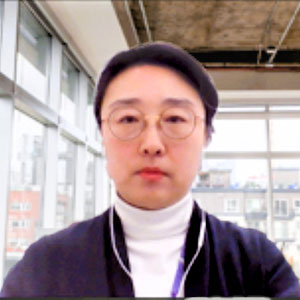
HyunHee Cho
HyunHee Cho
Principal Scientist I
Novartis BioMedical Research
Presentation Title
Evaluation of pERK cellular Lumit assay for HTS and drug discovery using Novartis chemogenetic LMW library
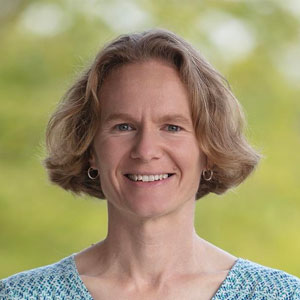
Marie Schwinn, PhD
Marie Schwinn, Ph.D.
Sr. Research Scientist
Promega
Presentation Title
Quantifying endogenous RAS/RAF dynamics in live cells
Bio
Marie joined Promega in 2010 and currently leads the Endogenous Biology Team within the Advanced Technologies Group. Her group is currently focused on designing genome editing tools and workflows to facilitate rapid generation of engineered cell models for the study of native biology. She has also contributed to the development of luminescence and fluorescence reporters for studying protein interactions, abundance, localization, and post-translational modifications. Marie earned her doctorate in biochemistry from the University of Wisconsin-Madison, and she also holds a bachelor's degree in chemistry from Drake University.
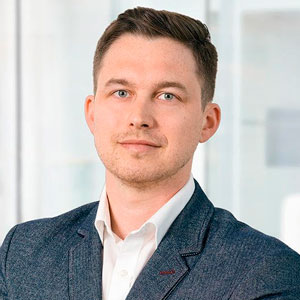
Georg Winter, PhD
Georg Winter, PhD
Principal Investigator
Center for Molecular Medicine of the Austrian Academy of Sciences
Presentation Title
Identifying and characterizing small-molecule degraders
Bio
Georg Winter is a chemical biologist and principal investigator at CeMM, the Research Center for Molecular Medicine of the Austrian Academy of Sciences. He was recruited to CeMM after his postdoctoral training that led to the first paper reporting on in vivo target protein degradation. Thematically, his lab works at the interface of chemical biology, cancer, and gene control. His group aims to innovate novel pharmacologic strategies to probe, understand and eventually disrupt aberrant transcriptional circuits in cancer. Dr. Winter’s research strategy is driven by high-throughput and unbiased technologies such as quantitative proteomics and functional genomics. Connecting these technologies with synthetic chemistry empowers the understanding of the mechanism of action of proteins, protein complexes and small molecules. Currently, the main focus of the group is to explore the concept of proximity-inducing small molecules that can rewire cellular circuits by acting as „chemical neomorphs“. This includes, but also transcends to concept of targeted protein degradation. Dr. Winter is author on more than 50 manuscripts including publications in Science and Nature. His research has led to the incorporation of C4 Therapeutics, moreover, he is a scientific co-founder of Proxygen and Solgate Therapeutics. His group is supported by several national and international grants including an ERC Starting Grant, a Cancer Grand Challenge Award, and an Aspire Award from the Mark Foundation. Dr. Winter’s contributions to the field of targeted protein degradation were acknowledged via multiple prices and awards, including the Tetrahedron Young Investigator Award, the EFMC Prize for Young Chemical Biologist in Academia, and the Eppendorf Award for European Scientists.
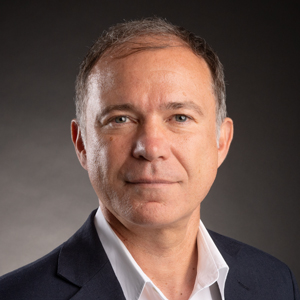
Zoran Rankovic, PhD
Zoran Rankovic, PhD
Professor of Chemical Biology, and Director of the Centre for Protein Degradation
The Institute of Cancer Research, London
Presentation Title
PROTAC optimization for oral delivery: How hard could it be?
Bio
Zoran is a Professor of Chemical Biology and Director of the Centre for Protein Degradation (CPD) at the Institute of Cancer Research (ICR), London.
Prior to joining the ICR, Zoran was Director of Chemistry at St Jude Children’s Research Hospital in Memphis, Tennessee, where he established and directed a productive Targeted Protein Degradation program, which developed novel cereblon warheads, PROTACs, and molecular glue clinical candidates. Before St Jude, Zoran was medicinal chemistry director and research fellow in Eli Lilly, Merck, Schering-Plough, and Organon. During his industrial career Zoran directed teams that delivered multiple clinical candidates over a range of therapeutic areas including oncology, neurodegeneration, psychiatry and cardiovascular disorders. Zoran authored and co-authored over 100 scientific publications, patents, book chapters, and edited two books on drug discovery topics.
Zoran’s current research interests focus on expanding and leveraging targeted protein degradation approaches to study cancer biology and develop next generation of cancer treatments.
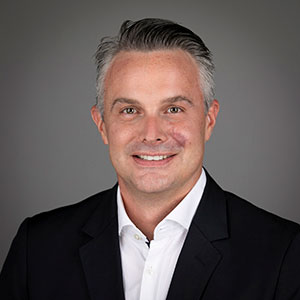
Matt Disney, PhD
Matt Disney, Ph.D.
Institute Professor and Chair of the Department of Chemistry
The Herbert Wertheim UF Scripps Institute for Biomedical Innovation and Technology
Presentation Title
Sequence-based design of small molecules targeting RNA structure
Bio
Matthew Disney and is a native of Baltimore, Maryland. He received his early schooling in the Baltimore Catholic School System, his B.S. from the University of Maryland, and his Ph.D. from the University of Rochester in Physical Chemistry
Matt is an Institute Professor and Chair of the Department of Chemistry at The Herbert Wertheim UF Scripps Institute for Biomedical Innovation and Technology (formerly Scripps Florida).
His laboratory has pioneered the development of small molecules targeting RNA, particularly by answering fundamental questions surrounding the molecular recognition of RNA folds by small molecules. The resulting data have informed the design of chemical probes to study problems of biomedical importance and to advance a gene-to-RNA-to precision medicine paradigm. Applications include development of sequence-based design of small molecules from genome sequence, using a disease-affected cell to manufacture its own medicine on-site, understanding the biology of coding and non-coding RNAs, and interfacing disease-causing RNAs with quality control machinery to edit or eliminate them from cells.
The lab’s research has garnered various awards including the ACS Nobel Laureate Signature Award for Graduate Education in Chemistry (with Alicia Angelbello), the Scripps Florida Mentor of the Year, the Sackler Prize in the Physical Sciences, Barry Cohen Award in Medicinal Chemistry, NIH Director’s Pioneer Award, the Tetrahedron Young Investigator Award, the Eli Lily Award in Biological Chemistry, the David W. Robertson Award in Medicinal Chemistry, among others.
Importantly, the laboratory’s work has spurred small to large pharmaceutical companies to invest in small molecule targeting of RNA. Matt has founded several biotech companies including Expansion Therapeutics (scientific headquarters in Jupiter, FL), which raised >$150M, and a new company that is currently in stealth mode.

Brad Swanson, PhD
Brad Swanson, Ph.D.
Strategic Collaborations Manager
Promega Corporation
Presentation Title
Suite of Assays to Enable RNA-Targeted Drug Discovery
Bio
Brad Swanson is a Strategic Collaborations Manager at Promega Corporation, bringing with him over 30 years of experience in the fields of Cellular and Molecular Biology, Stem Cell Biology, and Immunology. Brad works with the R&D and business teams to connect scientists with Promega products, technologies, and services with an emphasis on Promega’s cellular Drug Discovery products for large and small molecule drug discovery.
Prior to joining Promega, Brad was Vice President, Life Science R&D and Strategic R&D Programs at Cellular Dynamics International (CDI), where he led the life science R&D operations from start-up through IPO and eventual acquisition by Fujifilm. Before CDI, Brad was a Senior Scientist at both Roche-Nimblegen and at Promega.
Brad performed his postdoctoral research in the laboratory of Phillipa Marrack at the National Jewish Medical and Research Center as a Howard Hughes Medical Institute postdoctoral research fellow. This work focused on understanding the molecular events regulating memory T cell homing and differentiation. Brad received his PhD in Cellular and Molecular Biology from the University of Wisconsin-Madison in 1998 and graduated with a BS degree from Iowa State University in 1991.
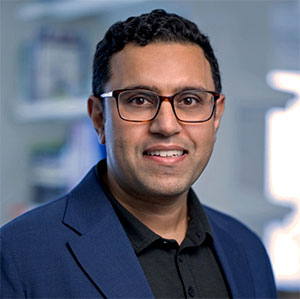
Arvin Dar, PhD
Arvin Dar, PhD
Benno C. Schmidt Chair of Cancer Research, Member and Professor, Chemical Biology Program
Sloan Kettering Institute, MSKCC (Memorial Sloan Kettering Cancer Center)
Presentation Title
Targeting cancer pathways with chemical switches and molecular glues
Bio
Arvin Dar is a member and professor in the Chemical Biology Program at Memorial Sloan Kettering Cancer Center’s Sloan Kettering Institute, where he is also vice director of the Center for Experimental Therapeutics. Dr. Dar graduated from the University of Western Ontario with a BSc in chemistry, earned his PhD from the University of Toronto, and received postdoctoral training at the University of California, San Francisco. Prior to joining MSK in June of 2023, Dr. Dar led an independent research group at the Icahn School of Medicine at Mount Sinai for approximately 10 years. Dr. Dar’s research is focused on kinase structural biology and small molecule design and synthesis. His laboratory has discovered several leads for therapeutic development, including chemical switches and molecular glues to target genetically defined cancers driven by the RAS and WNT pathways. In addition, Dr. Dar co-founded Nested Therapeutics (nestedtx.com) to advance innovative therapeutics aimed at challenging cancer targets and to increase the number of patients that benefit from precision medicine. Dr. Dar has received numerous awards and honors for his research, including the NIH Director’s New Innovator Award, Damon Runyon-Rachleff Innovation Award, the Pew Charitable Trusts’ Pew-Stewart Scholars for Cancer Research award, Pershing Square Sohn Cancer Research Alliance Award, Junior Faculty Award at Mount Sinai, and the Mark Foundation for Cancer Research ASPIRE Award.
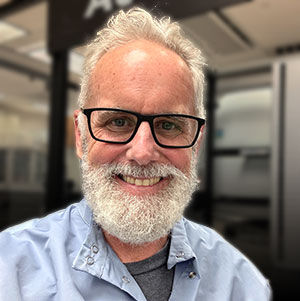
Tommy Turbyville, Ph.D
Tommy Turbyville, Ph.D
Principal Scientist
Frederick National Laboratory for Cancer Research-RAS Initiative
Presentation Title
RAS in Membranes—biology and targeting
Bio
Tommy obtained his PhD in Cancer Biology from the University of Arizona and has a primary interest in using imaging and creative approaches to understand cancer signaling and developing therapeutic strategies for fighting cancer. He has worked as a team leader within the NCI Ras Initiative for the last ten years, where his research is centered on comprehending the molecular mobility, residence time, and activation of RAS and its key effector RAF on the plasma membrane of cancer cells in real-time. The team employs cutting-edge techniques such as single molecule microscopy and tracking methods to achieve this while also employing cell-based proximity assays, such as nanoBRET, to target mutant RAS interactions with small molecules. The comprehensive investigation into RAS activity on membranes holds significant promise in the pursuit of innovative therapeutic approaches to target oncogenic RAS, thereby advancing our strategies for combating cancer.
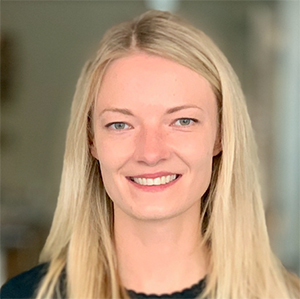
Fleur Ferguson, PhD
Fleur Ferguson, PhD
Assistant Professor in the Department of Chemistry and Biochemistry
University of California, San Diego
Presentation Title
Interrogating the druggable proteome with proximity pharmacology
Bio
Fleur Ferguson received her M.Sc degree in chemistry from Imperial College London, where she received the Department of Chemistry prize for overall excellence. Dr. Ferguson received her Ph.D in Chemistry from the University of Cambridge funded by a BBSRC studentship, advised by Prof. Chris Abell and Prof. Alessio Ciulli. She then joined Dana-Farber Cancer Institute at Harvard Medical School, where she performed her postdoctoral research in the laboratory of Prof. Nathanael Gray. Dr. Ferguson is currently an Assistant Professor in the Department of Chemistry and Biochemistry, and the Skaggs School of Pharmacy and Pharmaceutical Sciences, at the University of California, San Diego. Her academic research group focuses on the development and application of proximity-pharmacology technologies to disease areas where traditional targeted therapies have failed, such as degenerative diseases. Research in the Ferguson lab has been recognized by numerous prestigious awards including the NIH Directors’ New Innovator Award, the NSF CAREER, the Keck Foundation Research Award, and new investigator awards from the Alzheimer’s Association, the PhRMA Foundation, and the Hilblom Foundation.
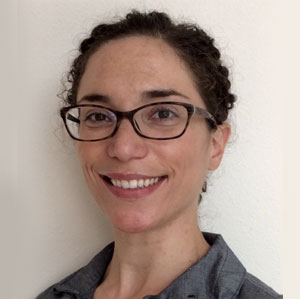
Kristin M. Riching, PhD
Kristin M. Riching, Ph.D.
Senior Research Scientist and Group Leader
Promega
Presentation Title
Profiling ternary complex and degradation of CRBN neo-substrates
Bio
Kristin received her Ph.D. in Biomedical Engineering from the University of Wisconsin – Madison. She joined Promega in 2014 and established approaches to characterize the cellular kinetics, potency, and mechanism of action of small molecule degraders. Kristin is currently a group leader focused on developing technologies to enable further insights into mechanisms underlying degrader efficacy and investigation of new induced proximity modalities for TPD.

Amanda Garner, PhD
Amanda Garner, Ph.D.
Professor in the Department of Medicinal Chemistry and Director of the Interdepartmental Program in Medicinal Chemistry
University of Michigan
Presentation Title
Enabling technologies for revealing druggable paths in RNA biology
Bio
Amanda L. Garner is a Professor in the Department of Medicinal Chemistry and Director of the Interdepartmental Program in Medicinal Chemistry at the University of Michigan. She received her Ph.D. in Chemistry from the University of Pittsburgh and completed NIH-funded postdoctoral studies at The Scripps Research Institute. Dr. Garner began her independent career in 2013 at the University of Michigan and her research integrates chemical biology, medicinal chemistry, and molecular and cellular biology approaches for early-stage drug discovery efforts with a primary focus on validating new therapeutic targets in RNA biology. For her research accomplishments, she was awarded Catalyst Awards from the Dr. Ralph and Marian Falk Medical Research Trust in 2016 and 2022, named a Rogel Scholar from the Rogel Cancer Center in 2022, awarded the David W. Robertson Award from the ACS Division of Medicinal Chemistry in 2022 and Ono Pharma Breakthrough Science Initiative Award in 2023.
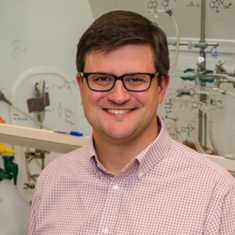
John S. Schneekloth, Jr. (Jay)
John S. Schneekloth, Jr. (Jay)
Senior Investigator and head of the Chemical Genetics Section in the
Chemical Biology Laboratory at the National Cancer Institute in Frederick, MD.
Presentation Title
Combining structure and design to improve the properties of RNA-binding small molecules
Bio
Jay Schneekloth is a Senior Investigator and head of the Chemical Genetics Section in the
Chemical Biology Laboratory at the National Cancer Institute in Frederick, MD. He earned his
A.B. from Dartmouth College in 2001 where he worked for Gordon W. Gribble on the total
synthesis of bioaccumulating halogenated natural products. He then moved to Yale University
where received his Ph.D. under the direction of Prof. Craig M. Crews, where he designed the
first cell-permeable protac molecules. He then pursued an NIH postdoctoral fellowship with Erik
Sorensen at Princeton University, where he designed cascade reactions applied to the total
synthesis of analgesic alkaloid natural products. In 2011, Dr. Schneekloth was recruited to the
National Cancer Institute. At the NCI, his research focuses on understanding nucleic acids as
targets for small molecules, particularly in the area of cancer therapeutics. His work
encompasses development of high throughput screening techniques, chemical biology probe
design development, biophysical characterization of target-ligand interactions, target
validation, and studying the structure and conformational dynamics of nucleic acids. Dr.
Schneekloth is currently the Chair of NCI’s Medicinal Chemistry Accelerator, a program aimed
toward translational development of novel biologically active small molecules discovered within
the NCI.